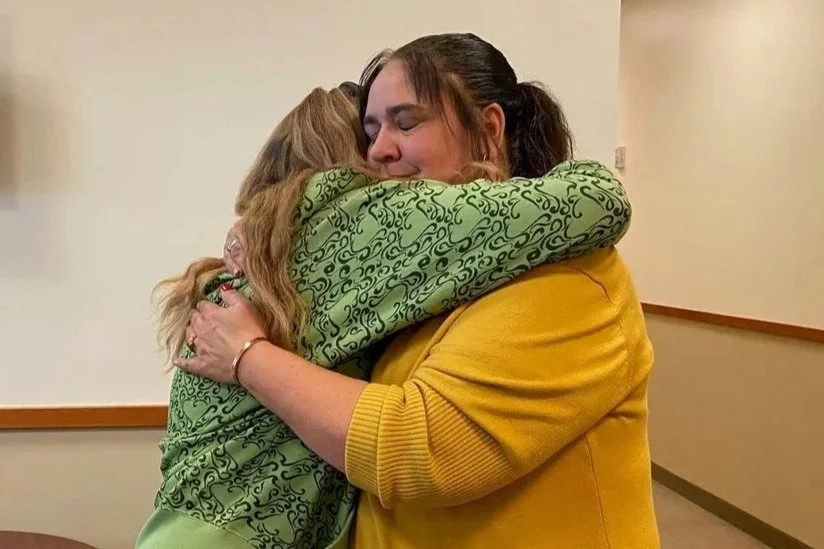resources for
Reentry & Recovery
Sample RFP for Recovery Housing
This Chesterfield County RFP offers a clear template for contracting recovery housing for jail inmates post-release. It covers provider expectations, coordination with jail staff, and grant compliance
Mental Health Care Barriers for Women Involved in the Criminal Legal System with Substance Use Disorders: A Qualitative Study
This study examines mental health care barriers for women with opioid use disorder in the criminal-legal system, highlighting shortages of psychiatrists and therapists, especially in smaller jails and rural areas.
Building a Behavioral Health Continuum of Care: The Role of Rural Leaders and Behavioral Health Directors
Webinar highlights rural leadership and behavioral health directors roles in building sustainable, accessible behavioral health systems through community dialogue and policy.
Butler County Ohio Jail Reentry Program
Butler County Jail's reentry program uses community partnerships for post-classification assessment, post-release action plans, and inmate advocacy.
Returning to the Community: Health Care After Incarceration
The US Department of Justice (DOJ) and the Centers for Medicare & Medicaid Services (CMS) released a guide to help people reentering communities after incarceration connect to health coverage and services, supporting reentry and health.
In Southeast Kansas, Homelessness Is Treated as Health Care, and People Are Getting Off the Streets
In southeast Kansas, home to the highest poverty rates in the state, collaborative solutions tailored to the needs of the community have proven successful in addressing homelessness and healthcare. The Community Health Center of Southeast Kansas offers care to the region regardless of a patient’s ability to pay. The center is one example among several rural solutions across the state, filling in the coverage gap and fostering healthier communities.
Rural Houselessness Among People Who Use Drugs in The United States: Results from The National Rural Opioid Initiative
Study describes houselessness among people who use drugs in rural communities across 10 states, addressing gaps in understanding rural drug use and harm.
On the Rebound: Stories from Recovery Court
This podcast series tells the stories of participants in Galax, Virginia's Recovery Court, focusing on opioid crisis impacts and rehabilitation.
Rural Roads - The RCORPodcast Ep. #74 Innovation Tank Follow-Up - Reducing Jail-Based Recidivism in Utah
Utah's Intermountain Health team discusses jail-based programs that reduce recidivism and opioid deaths, and share strategies for community engagement and program replication.
Rural Roads - The RCORPodcast Ep. #70 Adventures in Recovery (AIR) Initiative
Adventures in Recovery (AIR) in Cattaraugus County, NY, offers peer-led sober activities and support, fostering recovery through community engagement and wellness.
Rural Jails Turn to Community Health Workers to Help the Newly Released Succeed
Sanpete County, Utah, jail's community health worker program reduced recidivism by connecting released individuals to treatment, jobs, and support.
Transportation | Successful Strategies for Addressing the Opioid Epidemic in Rural Communities
Rural communities across the country are implementing solutions to these transportation challenges to better serve residents with SUD and make more efficient use of limited resources. This brief is one in a series highlighting projects that are part of the Rural Responses to the Opioid Epidemic (RROE) project.
How a New Program is Sparking Change in Ohio Jails
A couple of years ago, the Sandusky County Jail was the first in Ohio to launch a program called IGNITE, which stands for Inmate Growth Naturally and Intentionally through Education. IGNITE started in 2020 at a county jail in Flint, Michigan. The sheriff there wanted to shift the jail’s culture and reduce the rate of people returning to jail. So they started offering courses to teach skills like financial literacy and parenting. Since then, the National Sheriff’s Association has adopted the program and has spread to more than 25 jails nationwide.
Recommendations for Addressing the Opioid Crisis in the Justice System
Best practice and policy recommendations to guide state and local courts in their development, operation, and assessment of court-system responses to the opioid epidemic.
Essential Connections: CHCs' Role in Facilitating Healthy Transitions Out of Incarceration
Community health centers (CHCs) are essential in delivering care to formerly incarcerated people as they return to their communities. Expanding CHCs’ involvement in reentry care may require additional training on specific health needs and tailoring service delivery approaches.
Medicaid’s New Role in Advancing Reentry: Key Policy Changes
For the first time, Medicaid is being authorized to cover some health services for individuals in the period before they are released from incarceration to ensure smoother transitions upon reentry. This document summarizes the reentry policy changes and their next steps.
Dying Inside: To End Deaths of Despair, Address the Crisis in Local Jails
This brief outlines the legal framework on the right to adequate care and treatment for medical, mental health, and substance-related conditions in jails. The brief also highlights the findings of original research on litigation related to deaths in jail custody and provides recommendations for reform.
















